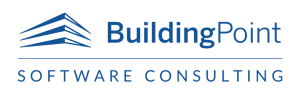I recently attended a webinar titled, “Understanding Today’s Workforce,” presented by FMI. A consultant from FMI, Jeremy Brown, talked about the workforce in the construction industry and how it’s changing. He said that the Millennials are coming into the industry, and companies need to be prepared for not only meeting their unique way of learning new things, but also for the amazing talents they will bring with them. In today’s construction workforce – meet the Millennials folks.
The discussion made me think back to when I started working, fresh out of school and ready to conquer the world. I felt like I knew it all, and found out fairly quickly that was not the case. I feel that I can give some insight to how the Millennial thinks and works, after all, I have three of them.
The word “Millennial” has become quite the buzzword, and almost always its associated with something negative. That generation has definitely had it easier than the ones before them. They have grown up with technology since they day they were born, and it has been exploding ever since. Everything from cooking, doing homework, getting in touch with friends, to driving, travelling and banking are automated and easier. Generation X and the Baby Boomers had to do many tasks by hand. This has been looked at as a good thing, as far as making things easier in life, however the Millennials have become totally disconnected with other people in a time when it’s easier than ever to be connected.
Brown said the most interesting thing, the generations that are all coexisting, are speaking different languages. He said that different generations will respond to management in different ways, and incentives for one group, might not be as interesting to another. Brown stated that the “old school” approach doesn’t always work best for Millennials. I agree with that though process completely. Business owners get comfortable doing things the way they always have and are resistant to change. Millennials think different way because of the technology they were raised with. They don’t want to just earn a paycheck. They want to know why they’re doing it, how to do it, and how they can make it better, faster.
Brown also spoke about present day hiring trends. It seems that companies who take a proactive approach, seem to enjoy the most success. Instead of sitting in the office waiting for applications, they go to colleges and trade schools to find the students who are excelling. It’s an excellent way to fill a company’s team with well qualified workers. A lot of times these leading companies will do interviews right there at the schools, allowing the candidate for the job to feel at ease in a comfortable atmosphere. It is also encouraging to the young generation that the companies are reaching out to them, instead of them seeking out employment. The construction industry is having a hard time filling positions and this is a wonderful way to let everyone know they are serious about hiring fresh new faces.
Companies that are sitting back and waiting for this new generation to come to them are missing the boat. The Millennials have been given a “lazy” label that they don’t necessarily deserve. When my children were looking for their first serious jobs, they would show me advertisements that said things such as, “Highly-motivated People Only.” or “Motivated only need apply.” When my children would go to their interviews with these companies, they found nothing “Motivated” about the company or the recruiter they spoke to. Not only would my children come home feeling a bit deflated, they were getting a bad image of what companies were looking for and felt that they did’t fit that mold.
What the construction industry needs to realize, is that it wants and needs Millennials on their workforce. Not only are they bringing a special skill set, they are always interested in finding new, better ways to do things. They are a group that adapts quickly, and embraces new technology that other generations shy away from. Construction companies are desperate for help, and this generation truly wants to work. Perhaps changing the hiring process and incentives offered will bring them in the door.
Watching my children and their friends bloom, I can say that they view their personal success as the companies success. They want to keep learning and growing and advancing. They are not trying to insult “old school” ways of doing things, they just want to improve them and make them easier for everyone. Hiring this generation is a priority that every company should make an effort to do.

